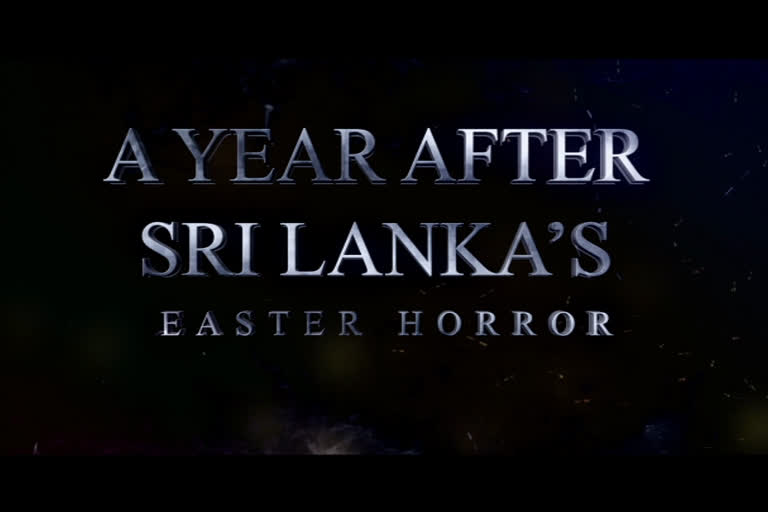Hyderabad:A somber year has passed since the gruesome attacks on the island nation leaving a mass of unanswered questions. Just a day before Sri Lanka was bracing to commemorate a year of its tragedy, police spokesman SP Jaliya Senaratne informed that the perpetrators were planning a second attack in the country.
The Criminal Investigation Department (CID), which has been probing the attack for the last one year went further to add: "It has been revealed that these suspects who were arrested (recently) have worked with certain organisations to preach extremism, misleading youth by giving them a wrong interpretation of Islam.”
Yet in many ways the attacks on the Easter Sunday last year have been one of the almost open and shut case: More than 259 innocents were killed including 45 foreign nationals (11 Indians) and three police officers, and at least 500 were injured in a spate of bombings and property worth crores turned into ashes in a matter of few hours.
A year after where does the investigation lead us to? There have hardly been any breakthroughs all these months till last Wednesday when the Sri Lankan police made two high-profile arrests: one a prominent lawyer and other a Muslim political party leader's brother who allegedly had links with one of the suicide bombers.
Read Also:Easter Sunday bombers planned second attack in Sri Lanka: Police
Nine suicide bombers affiliated to local Islamist extremist group National Thowheed Jamath (NTJ) blasted three churches and three luxury hotels on April 21, 2019. The NTJ is a jihadist group affiliated to the Islamic State. The government of the day banned the NTJ soon after the blasts.
The deadly explosions targeted Christians at 'Easter Sunday' church services in Colombo, Negombo and Batticaloa as well as the tourists staying in luxury hotels in Colombo.
Christians in Sri Lanka celebrated Easter in their homes on Sunday, participating in religious services via television as churches remained closed due to the coronavirus pandemic.
Read Also:Harry and Meghan say they won't cooperate with UK tabloids
TV stations aired the Easter Vigil and Holy Mass in all three main languages used in the Indian Ocean island nation. But there were no organized events to remember the more than 259 people, mostly Catholics, who were killed in Islamic State group-inspired bomb attacks on three churches and three hotels in Sri Lanka last Easter.
EASTER HORROR
The suicide bombers affiliated to local Islamist extremist group National Thowheed Jamath blasted three churches and three luxury hotels on April 21, 2019, killing at least 259 innocent souls including 45 foreign nationals and injuring about 500.
The explosions targeted Christians at Easter Sunday church services in Colombo, Negombo and Batticaloa and tourists staying in luxury hotels in the capital.
These coordinated bombings ripped apart St. Sebastian’s Church in Negombo, St. Anthony's Shrine in Kotahena and the evangelical Zion Church in Batticaloa.
Though the Islamic State claimed the attacks, the government blamed local Islamist extremist group National Thawheed Jamaath for the destructive bombings.
